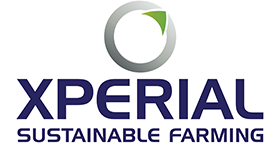Zinc is an important essential nutrient that is required in the bird’s diet. Not only is there approx. 200 zinc dependent enzymes in the body but it is also an essential component of both RNA and DNA. It plays a key role in stimulating the immune system and is also vital to the activity of various hormones including growth hormones. A deficiency of zinc in the diet can have a serious impact on poultry production.
The small intestine is where zinc is primarily absorbed. The bioavailability of zinc is affected by the presence of dietary calcium, copper, magnesium, iron and phosphorus which ‘bind’ with the zinc to enable it to be absorbed. In monogastric animals zinc absorption can be decreased due to the presence, for example, of phytate.
Signs of zinc deficiency in young chicks include:
- retarded growth
- shortening and thickening of leg bones and enlargement of the hock joint
- scaling of the skin (especially on the feet)
- very poor feathering
- loss of appetite
- And in severe cases, mortality.
Chicks hatched from zinc-deficient hens are weak and cannot stand, drink or eat. They have accelerated respiratory rates and laboured breathing both of which tend to lead to death of the chick. In major deficiency cases hatched chicks can exhibit grossly impaired skeletal development. Curvature of the spine, shorthand and fused thoracic and lumbar vertebrae can be witnessed and in extreme cases embryos may have missing toes or entire lower limbs. In some cases the eyes may be missing or not developed. In ageing hens zinc deficiency can reduce egg production.
Broilers being fed high bioavailable sources of zinc, such as zinc complexes, have been known to show improvements in gain and feed conversion. In layers shell quality and production are greatly improved. It may be necessary to supplement zinc into the diet if feed ingredients have low zinc content with varying levels of bioavailability.

